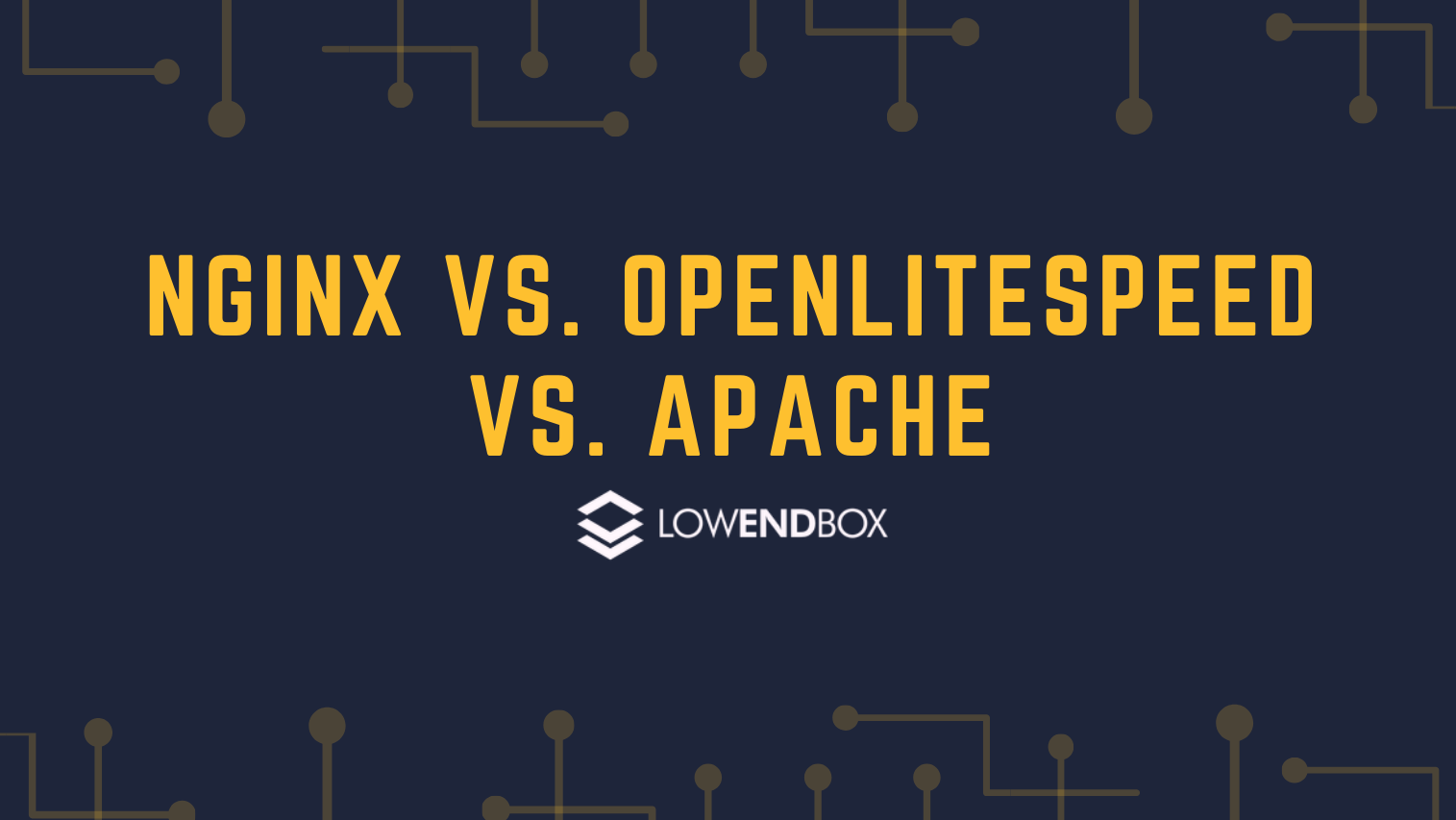 This article was contributed by Dustin B. Cisneros of RackNerd – a provider of shared hosting, reseller hosting, VPS hosting, dedicated servers, DRaaS, colocation, and more.
This article was contributed by Dustin B. Cisneros of RackNerd – a provider of shared hosting, reseller hosting, VPS hosting, dedicated servers, DRaaS, colocation, and more.
A web server is an integral part of your website. The performance, security, and reliability of your website depend on which web server you are using. There are three common names when it comes to choosing a web server; these are Nginx, OpenLiteSpeed, and Apache. Today, we will tell you about each of the web servers in detail and compare them so that you know which one suits your needs the best.
Nginx
Nginx was made public in 2004, and since then it has gained an enormous number of users, including companies such as Facebook, Google, and Microsoft. It is an open-source web server and was made to address the C10K problem, that is to be able to handle 10,000 connections simultaneously.
Nginx has fantastic scalability due to its excellent optimizations. It was made to use low memory and offer the highest concurrency possible. It does so by using an asynchronous event-driven approach, rather than creating a new process for each new request. Other notable features of Nginx include reverse proxy with caching, FastCGI support, and support for IPV6.
OpenLiteSpeed
OpenLiteSpeed is an edition of the LiteSpeed web server. The initial release for it was made in 2003, and now around 7% of the websites in the world use LiteSpeed web servers. In terms of usability, it is very similar to Apache, and can make use of most of Apache’s features that you may already be accustomed to (i.e. htaccess). LiteSpeed also utilizes an asynchronous event-driven architecture like Nginx. Thus, it provides fast response and fantastic concurrency.
OpenLiteSpeed is free for personal and commercial use; however, it does not have all the features of the paid version of LiteSpeed Web Server.
Apache
Apache is the most widely used web server in the world; more than 50% of the website use Apache. It is also the oldest, with its first release being in 1995.
Unlike Nginx and OpenLiteSpeed, Apache web server has a thread-based structure instead of an event-driven architecture. This leads to a slow-down when the web server is seeing a large amount of traffic. However, for small to medium-sized websites, Apache is an excellent choice as it is easy to configure, broad support, and mild learning curve. Moreover, Apache provides a high level of security due to its frequent update cycle.
If you are looking for a web server software that can handle a lot of requests without slowing down, then you should consider Nginx and OpenLiteSpeed. They are both very similar in performance, usage, and concurrency. However, if you are starting a small website, then Apache would be a great choice as it is much easier to learn and configure.
Looking for a VPS to run a web server on? Check out LowEndBox.com for a variety of other offers from hundreds of different providers to choose from.
What is your preferred web server? We would love to hear your thoughts in the comments section below!























Litespeed will probs keep stealing market share from Apache because their more aggressive marketing and has server level cache unlike Apache…. but their main audience is WordPress shared hosting licenses which is why they are trying to partner so much with cPanel and CloudLinux
However if you look at their cache plugin for WordPress it is extremely bloated and many of the feature is not even about Litespeed (minify etc)
https://www.reddit.com/r/selfhosted/comments/f06vse/litespeed_servers_seem_like_a_marketing_scam_are/
very revealing chat for the geeks who care
Anyway I think if they focus more on open source and stop some of the bad habits, it will improve their reputaion the industry but any server that uses htaccess is not in the same level as Nginx tbh
Thanks for sharing the link, Gareet, that is worth reading.
In fact Apache 2.4 has already many cache modules too (and events-driven architecture) same as Nginx/Litespeed. But they are not doing marketing much.
https://webmasters.stackexchange.com/questions/21862/does-using-litespeed-instead-of-apache-speed-up-wordpress
Open source will always win, because it is more neutral and community-focused.
Litespeed is trying to kill Apache, but it will fail.
Actually the gentleman is incorrect about apache. It now has an event-driven mode and a hybrid event driven mode. you can use the old thread prefork or you can use the hybrid or you can use the full event driven mode. I use the event driven mode period Apache is not as efficient as nginx but with the event driven mode it can now handle a whole ton more simultaneous connections than it could under the old free fort mode
Thank you for the feedback William, we will consider this for a follow up.
I use CyberPanel on OpenLiteSpeed and it has many advantages, particularly the load on the server. However there are downsides. Password protecting a folder is complicated compared to Apache and I still haven’t managed it. With email you can only create a forwarder if a full email account exists. SSI support seems to be hit and miss and extended server side includes don’t work. If there is one SSI the system doesn’t like none of the page appears at all. So if you want to host an old site which uses SSI you may end up recoding every page as PHP. One my sites which was problematic has 350 static pages.
How busy are the sites which you are serving using OpenLiteSpeed?
I became interested in using apache web server after reading your review
How has your experience been with Apache, JejakTerkini?
Hi, thank you for an awesome article! But I would like to ask about web server. Which one is better Nginx Plus vs Litespeed Enterprise?
Glad you enjoyed this article. We will publish a follow up soon.